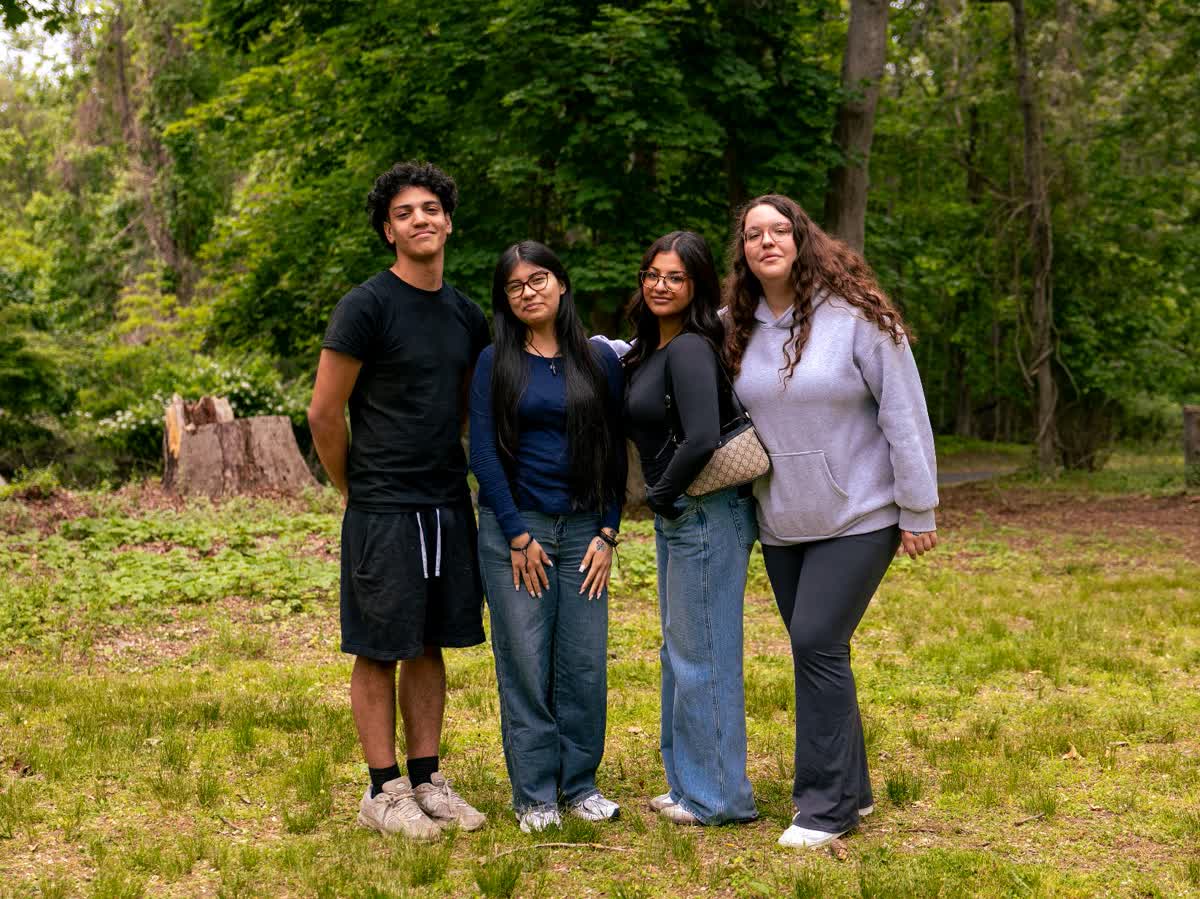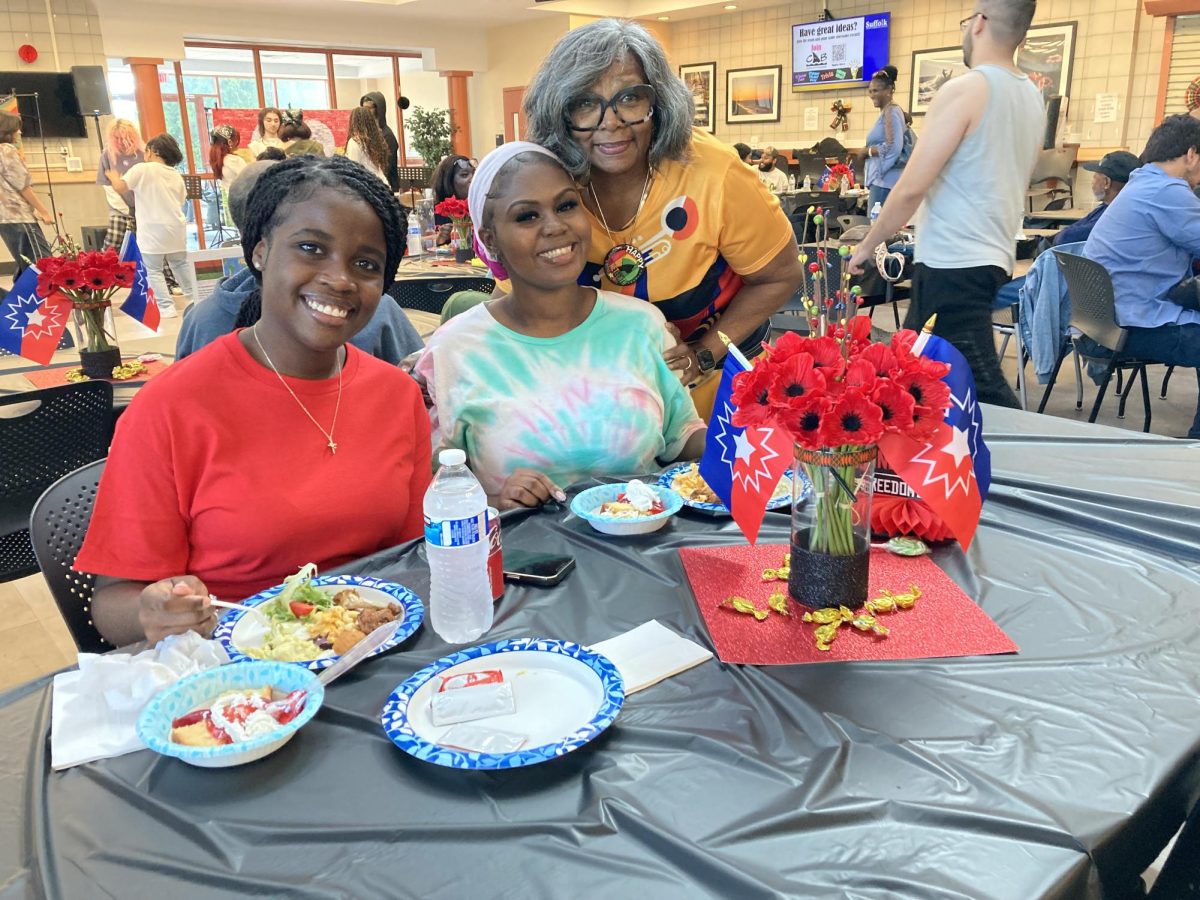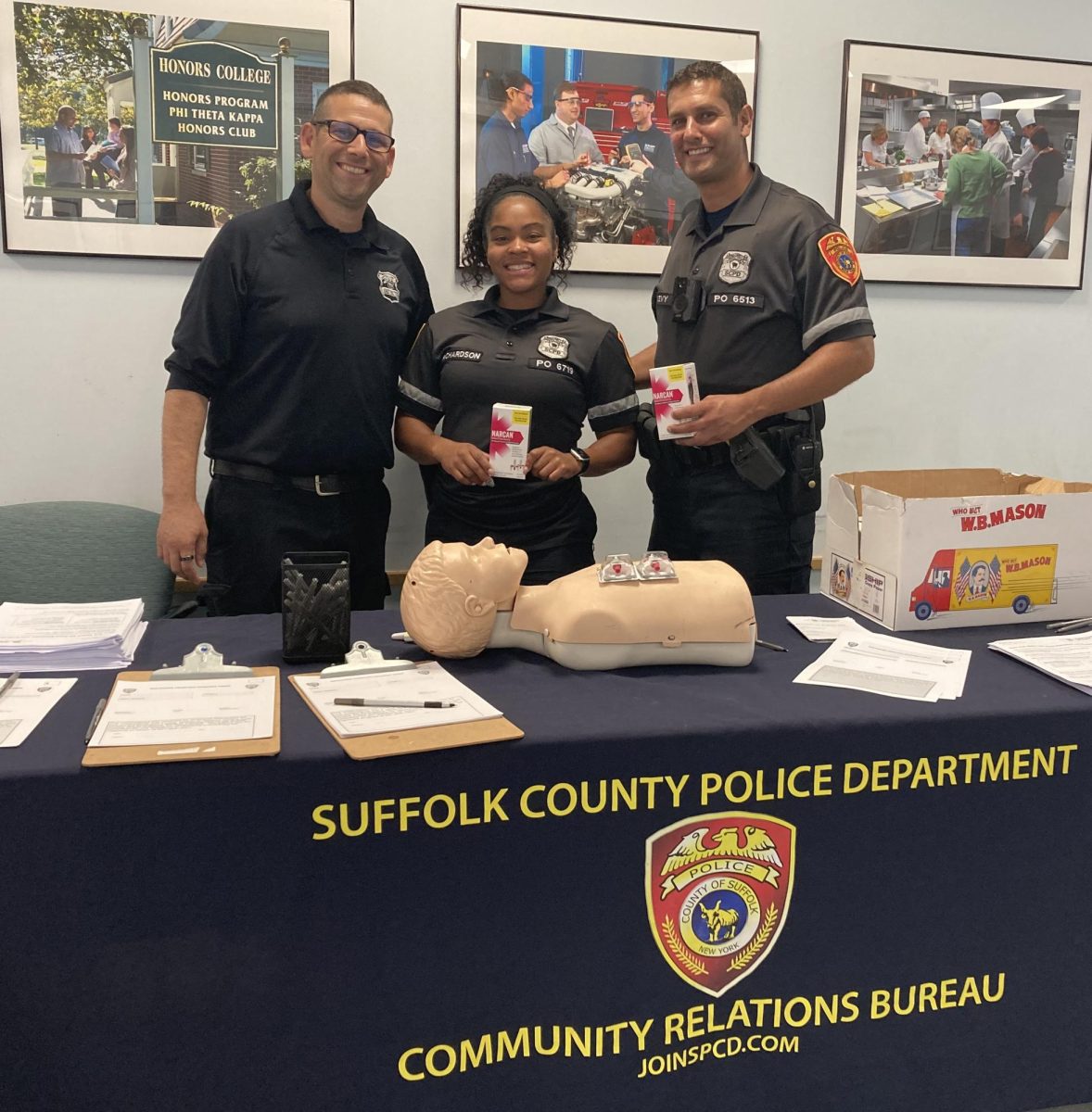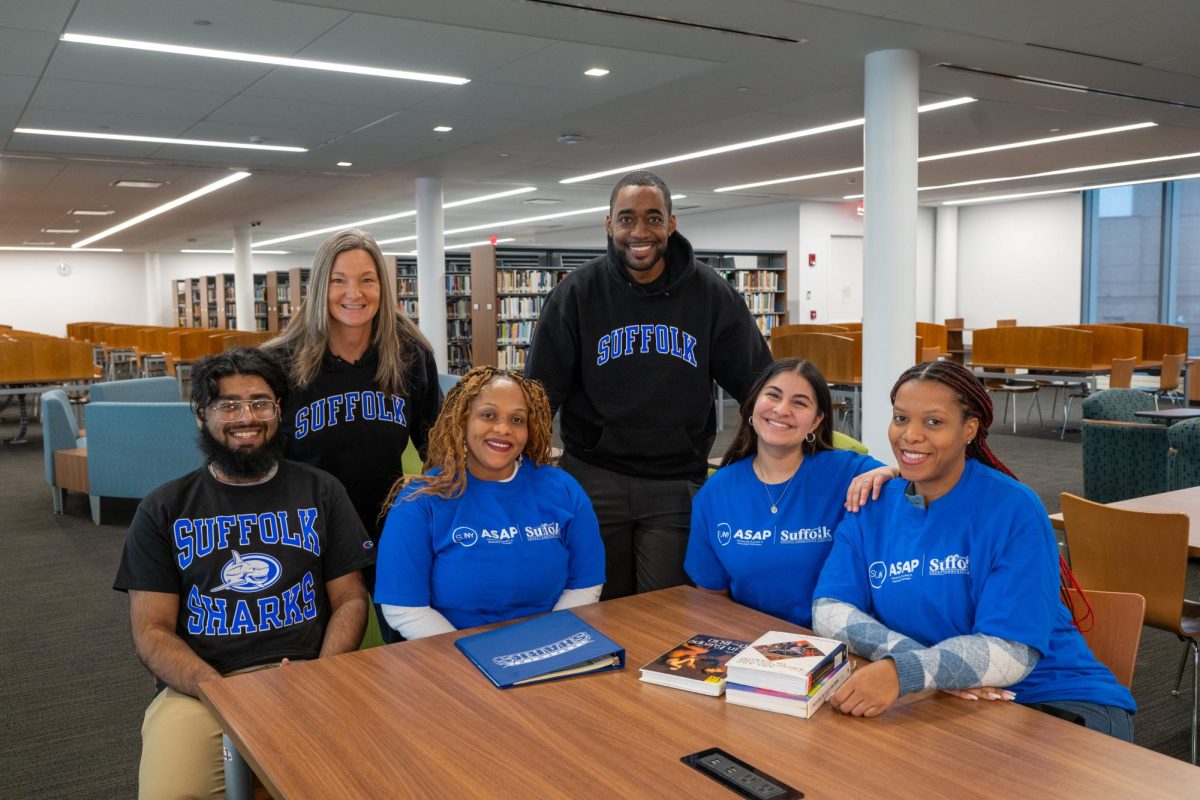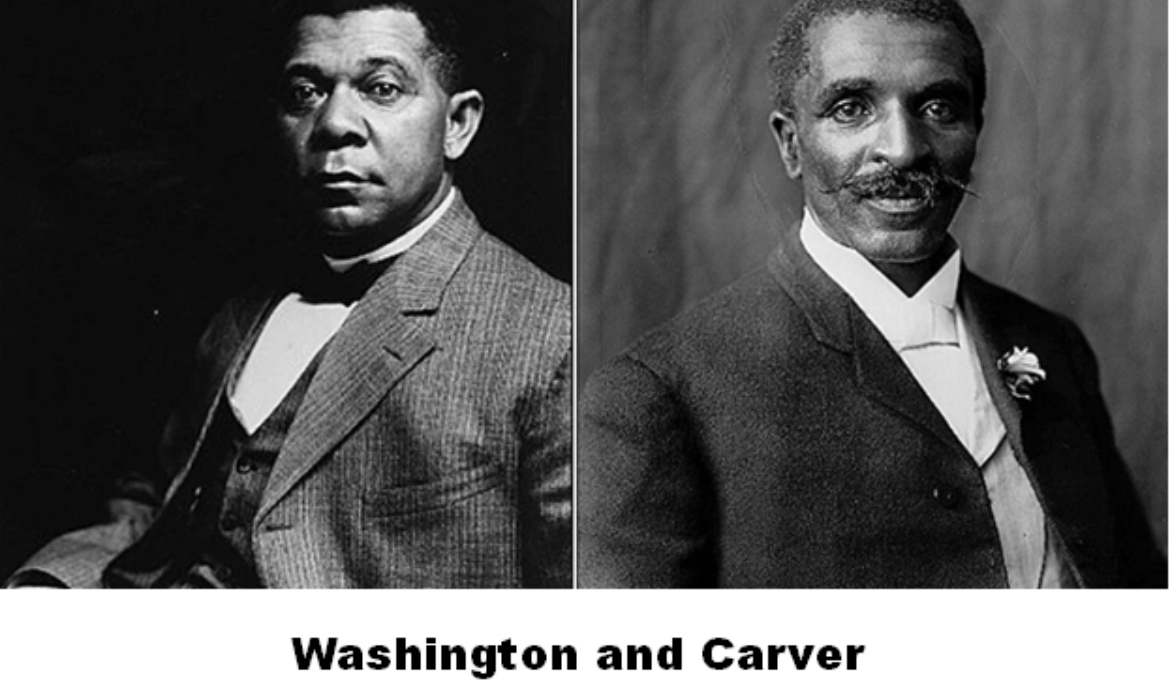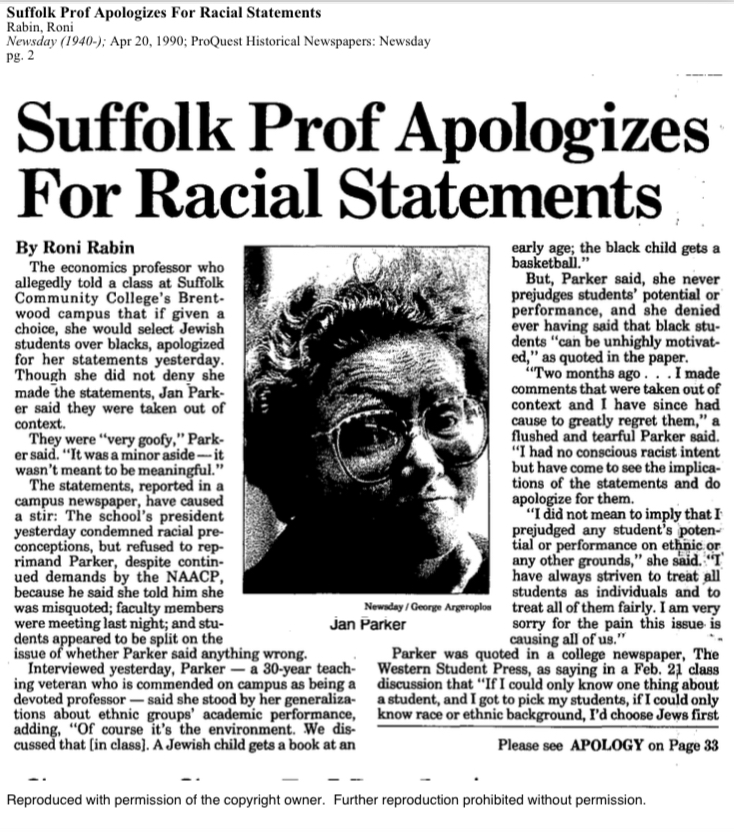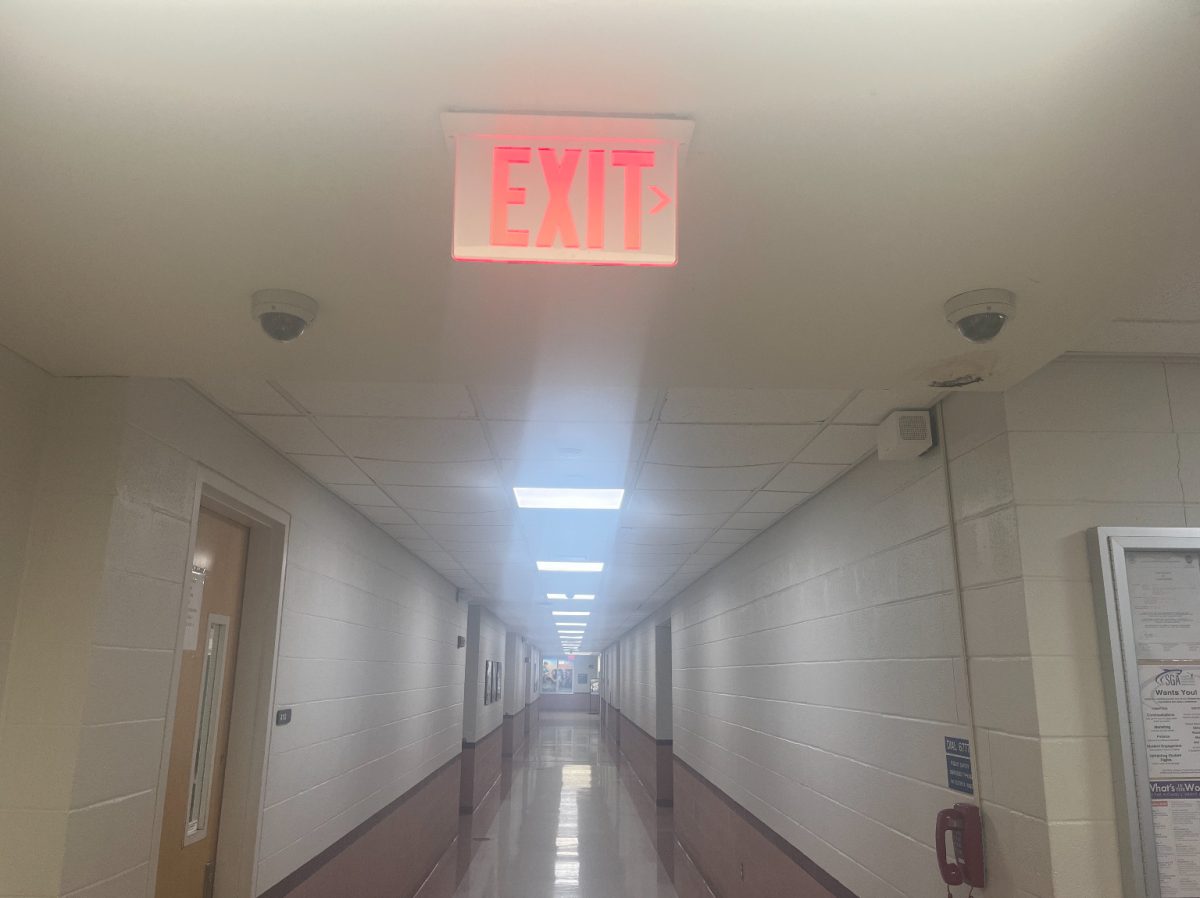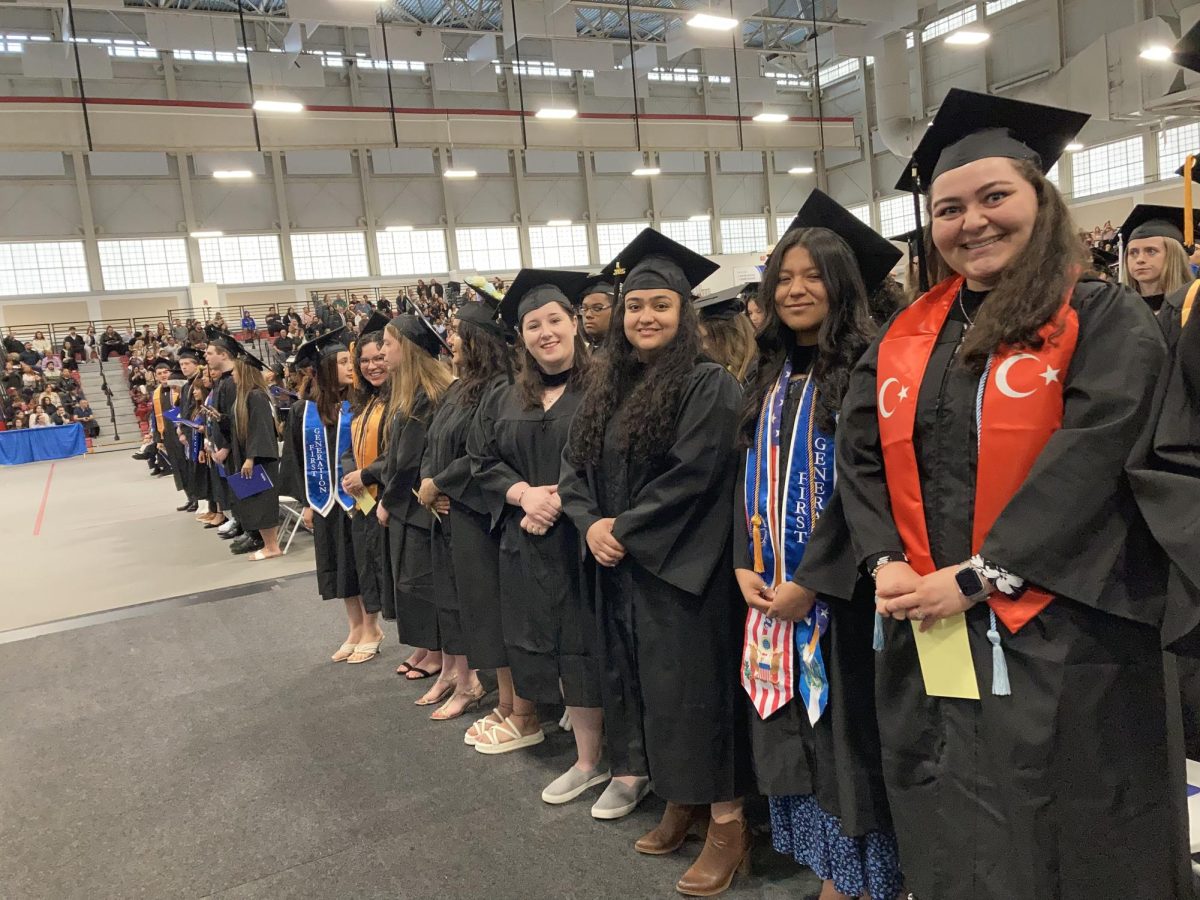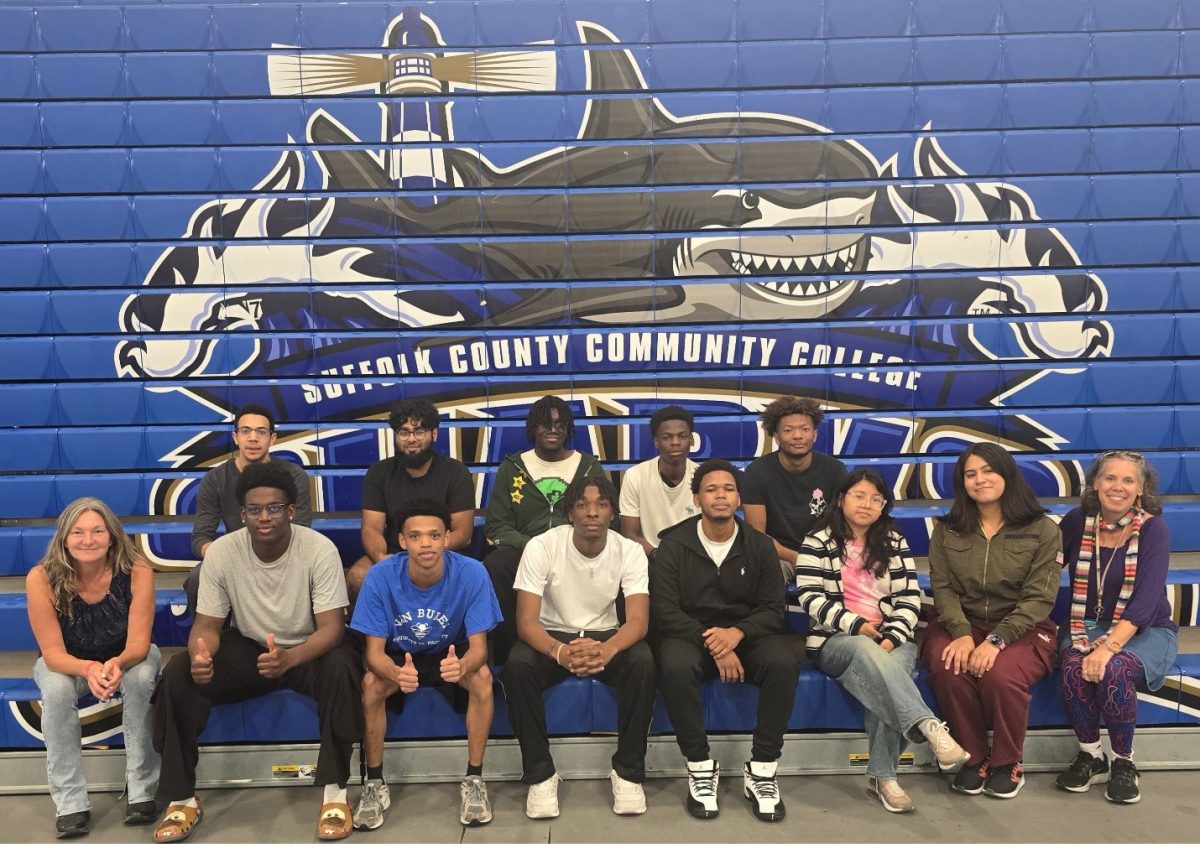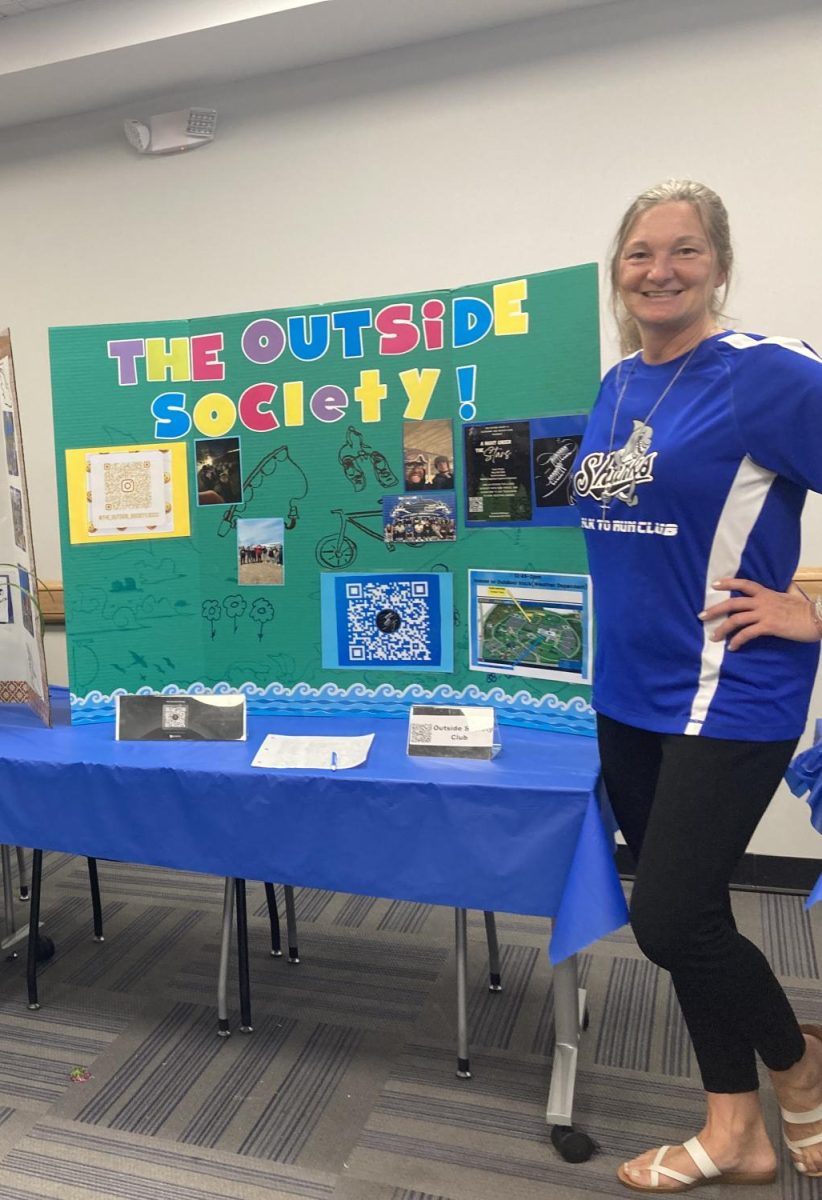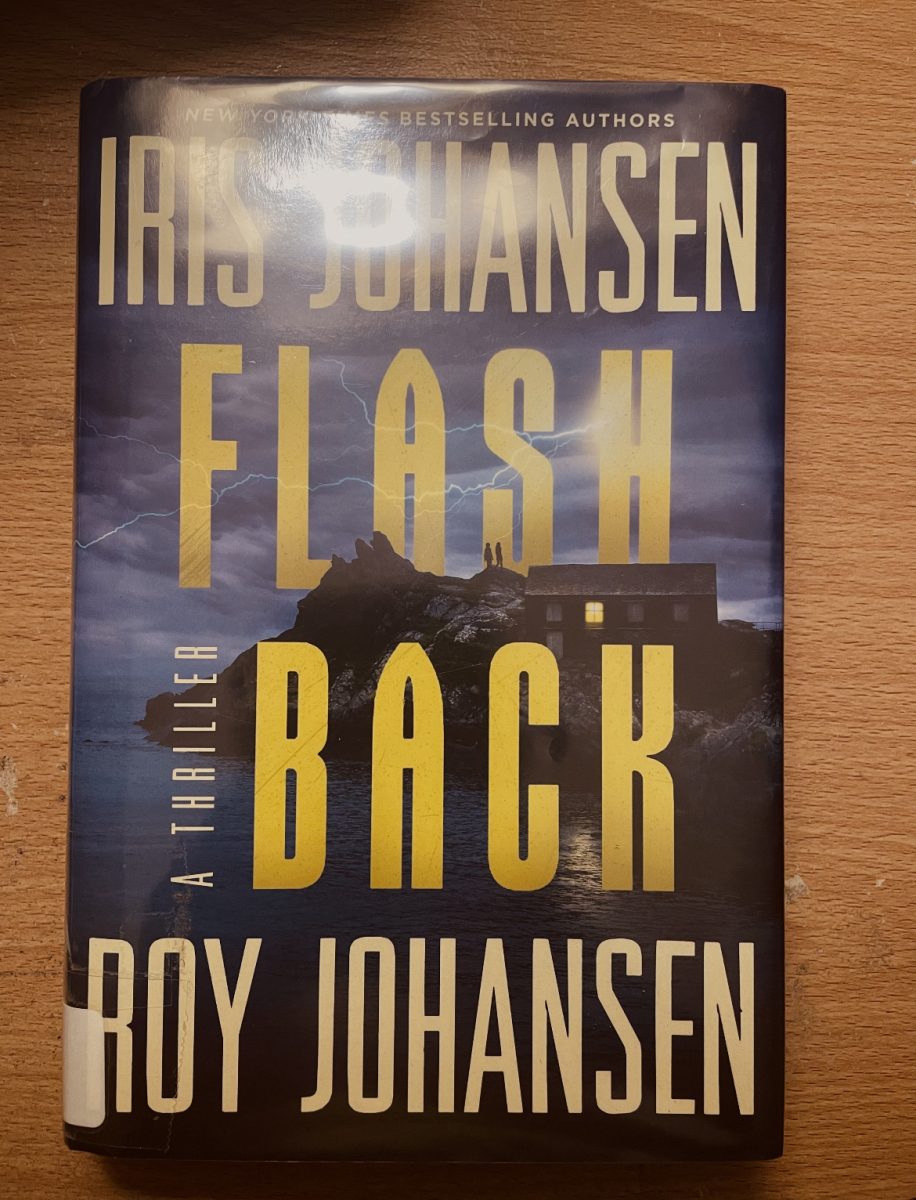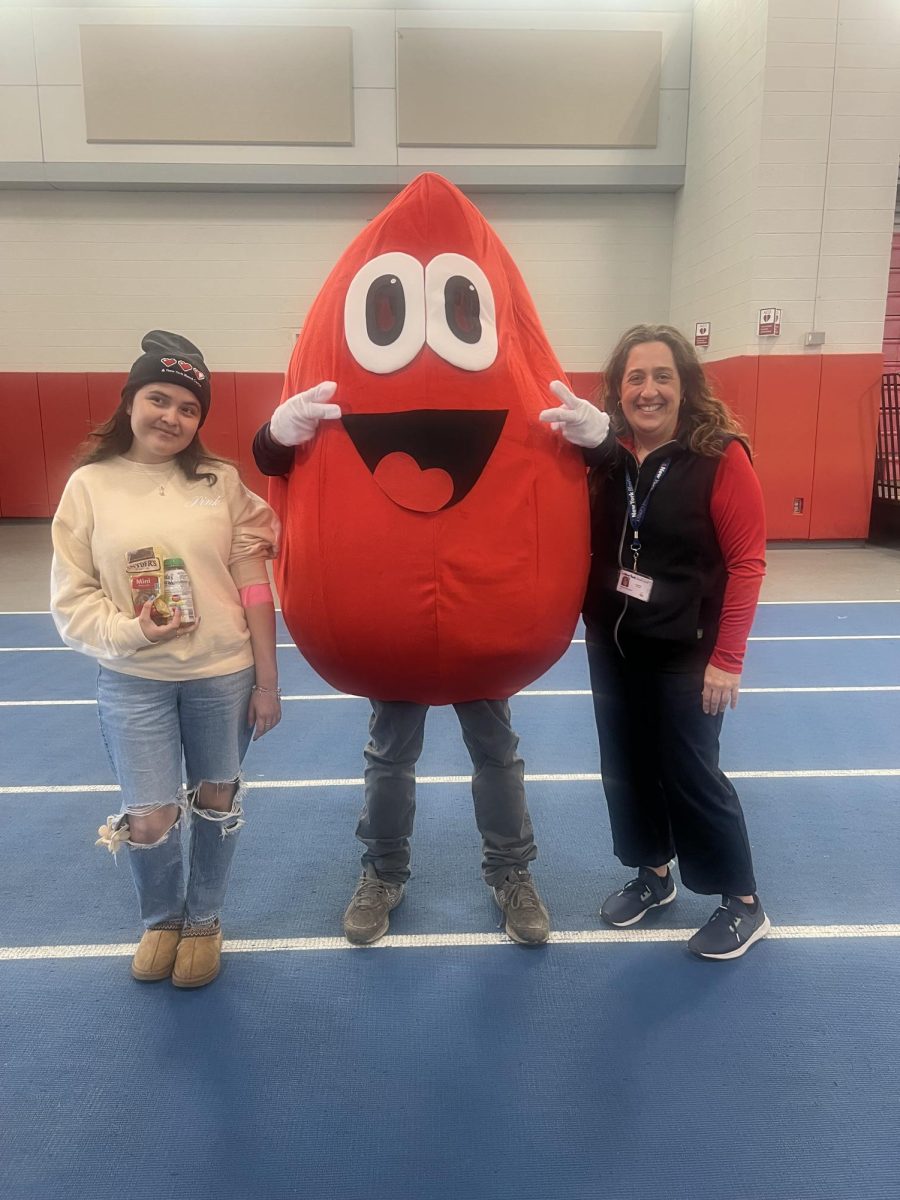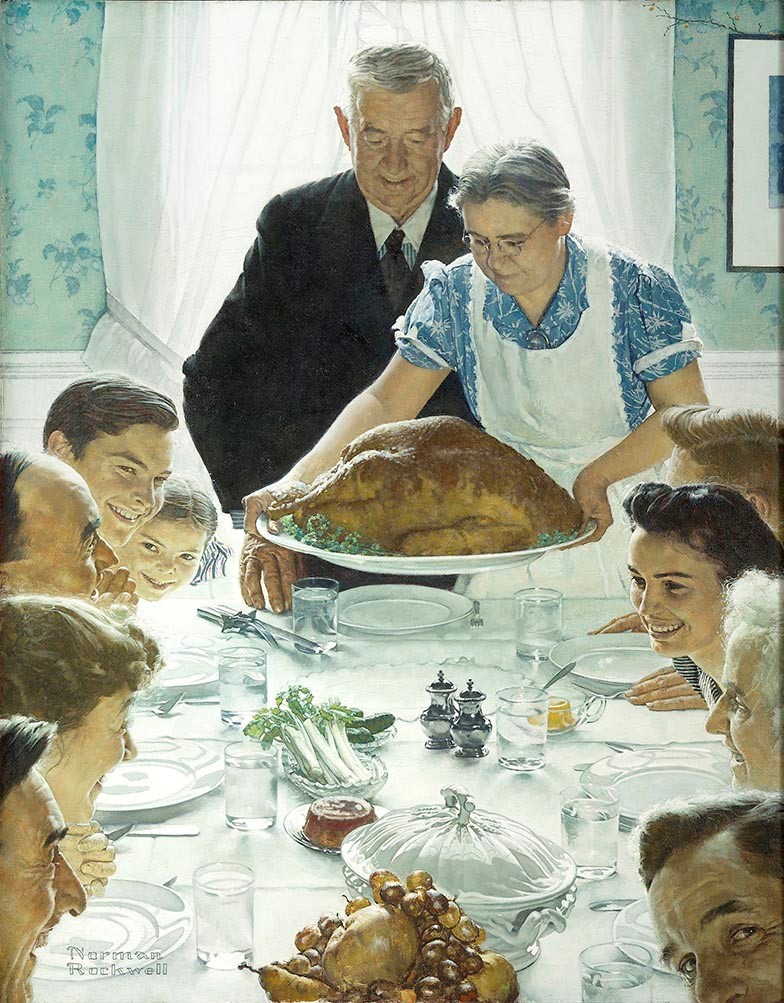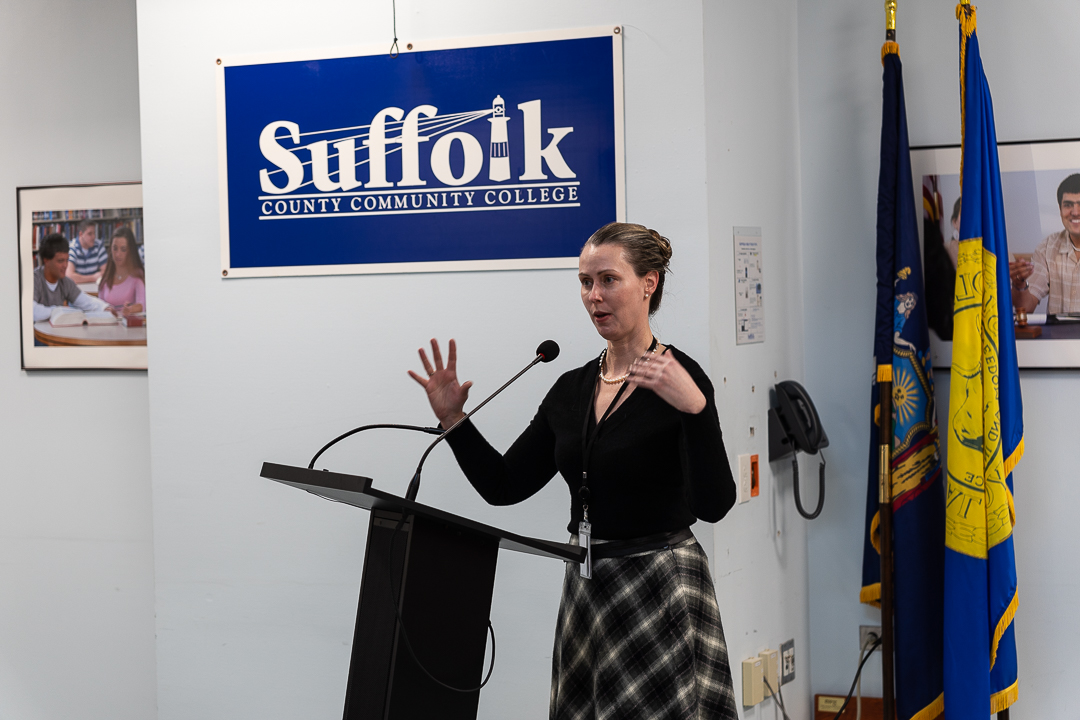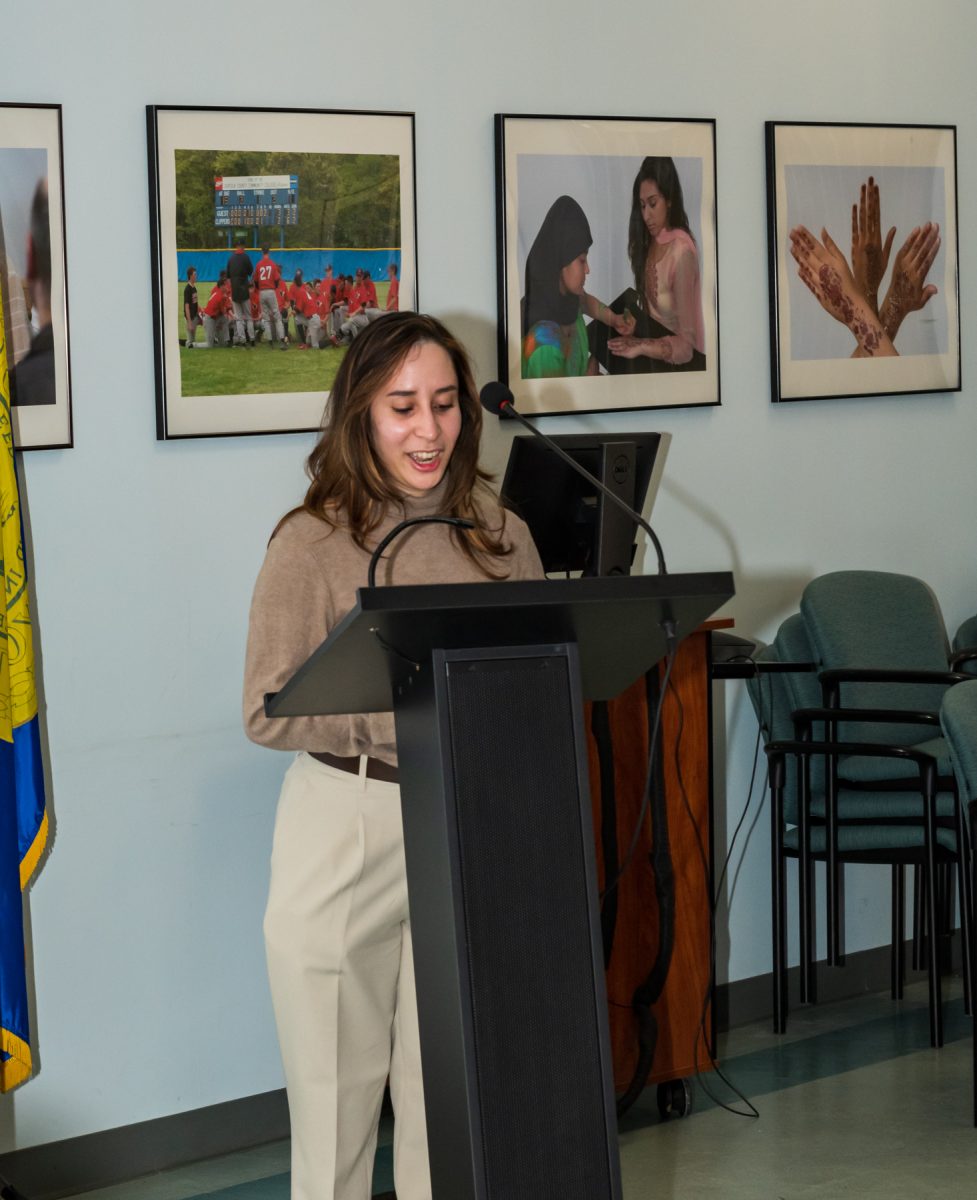In honor of Black History Month, the English Department at Suffolk County Community College’s (SCCC) Grant Campus hosted an event to celebrate African American authors and poets. The event highlighted contributions from African American authors and poets throughout history.
Students, faculty, and staff were able read from the works of their favorite African American authors for spectators while a light breakfast was provided. The English Department’s read-in has been held annually for the last 10 years and has been a favorite among students and faculty alike. Volunteer speakers read poems from a wide variety of Black writers, such as Langston Hughes, Maya Angelou, and Paul Laurence Dunbar.
Throughout the history of the United States, Black literature has been a way for African Americans, held down for generations by the chains of injustice, to freely express themselves. Presently, Black literature puts a microscope to the history of the Black experience, and through the lens of those who went through it. Periods like the Harlem Renaissance gave a voice to the voiceless, which can still be heard by those living in the 21st century.
Chairperson of the Grant Campus English Department, Dr. Kathryn O’Donaghue, opened the ceremony with a brief exposition of the history and significance of African American literature to American literature as a whole, followed by an introduction of the speakers read by the event’s emcee, Ruby Mancia. When asked why she chose to participate in this event, Mancia said, “A professor said it would be good practice, as I am a performing arts major and an actor.” She went on to say that the event’s importance also persuaded her to participate.
Many other students who participated took advantage of the opportunity to practice their public speaking, while also celebrating black history. Another student/actor, Ashley Dominguez, read the poem “Dreams” by Langston Hughes. Dominguez went on to say she loved the opportunity to hone her speaking skills, while also commemorating an important poet like Langston Hughes. Student, Aidan Vergano recited two poems, “What Great Trees Fall” and “Alone” by Maya Angelou. “It was a great opportunity to do something I love, reciting poetry, and also do something important,” said Vergano.
The selection of readings showcased the variety and depth of African American literary talent, ranging from classics to contemporary works. Many additional volunteers read works from their favorite Black authors, including one student who recited “Those Winter Sundays,” a poem written by Robert Hayden about his regret for not appreciating his parents as he should have. Another volunteer recited “The Rose That Grew from Concrete” by the late rapper Tupac Shakur. Other poets and authors students recited were Nikki Giovanni, Jason Reynolds, Audre Lord, Claude McKay, and more. Professor Naomi Edwards concluded the event with a poignant reading from bell hooks’ essay “Love as The Practice of Freedom” which speaks of the importance of love in conquering hate and seeking social justice. Reflecting upon her choice, Professor Edwards said, “For one, I love bell hooks, and it speaks to the importance of having empathy and compassion for people you might feel don’t deserve it.” She also mentioned passionate discussions in her classes about the ability to feel love and compassion for someone who is seeking their destruction and downfall.
When reflecting on Black History, it is important to recognize Black literature’s effect on our society and culture of the modern day. Literature is a form of art, and societies use art to display who they are, or at least, who they aspire to be. That is why celebrating the great African American poets and authors of the past is so important to understanding the truth of the American people. It gives insight on the issues that have plagued the past, and often continue to affect the world today. Looking ahead, the celebration of African American literature at SCCC will continue to be a cherished tradition, fostering diversity, dialogue and understanding for years to come.




